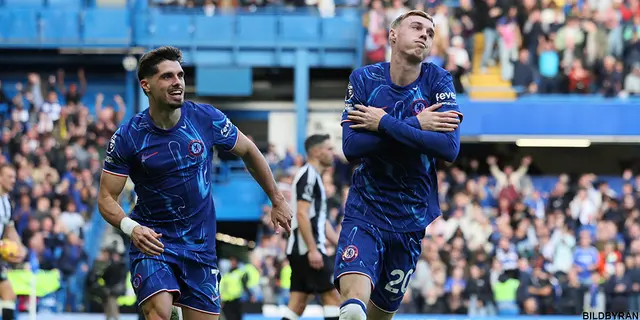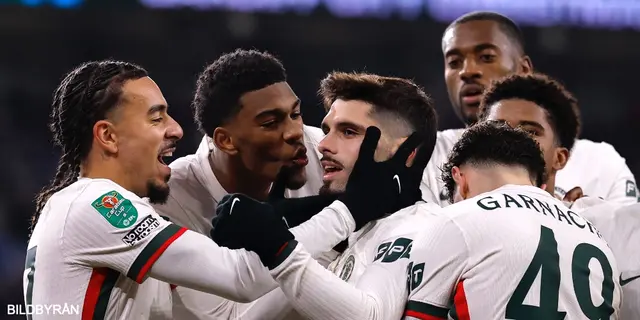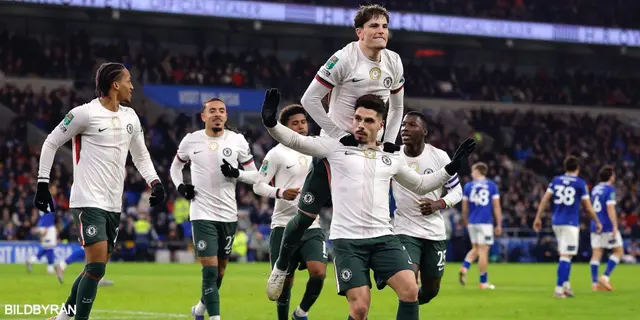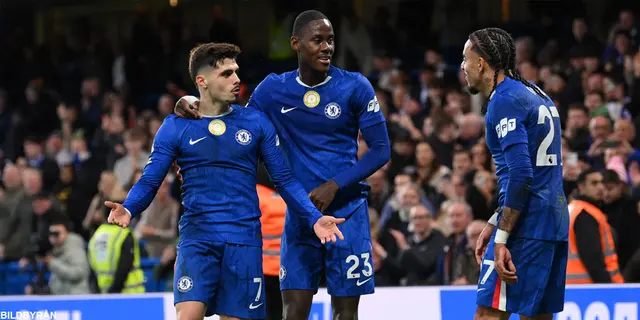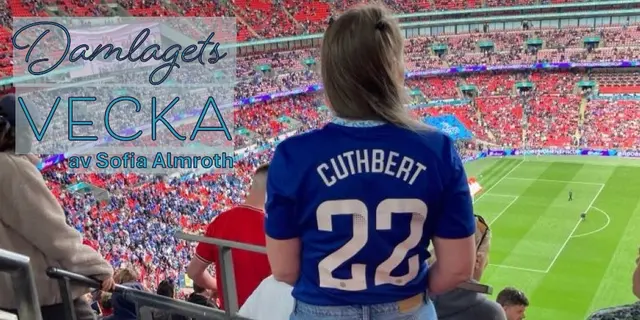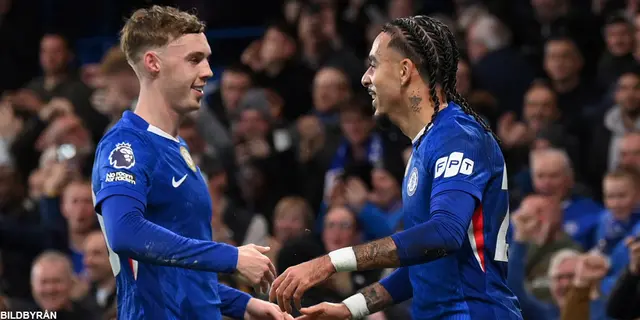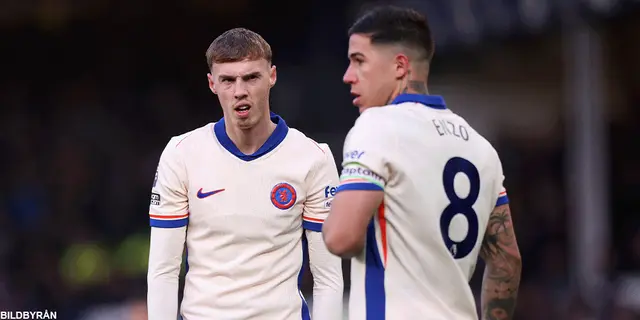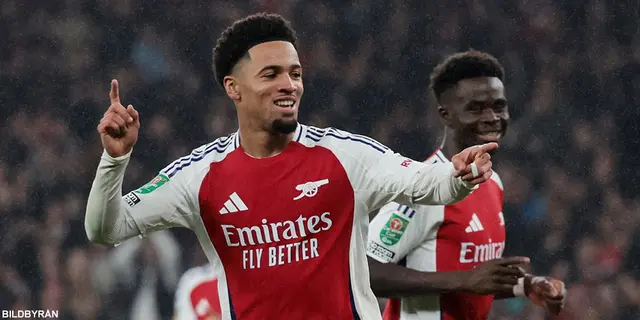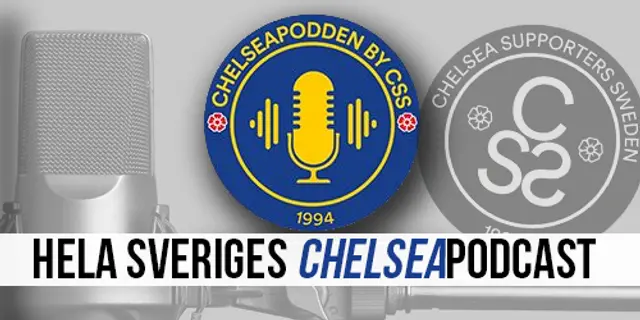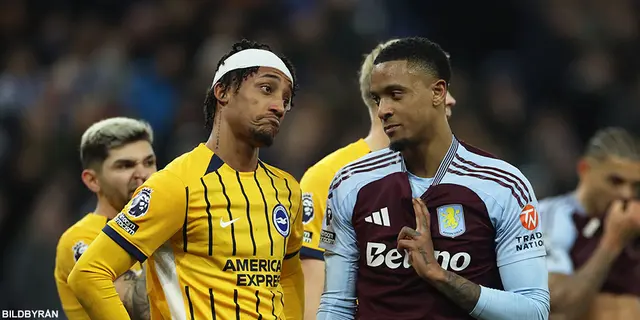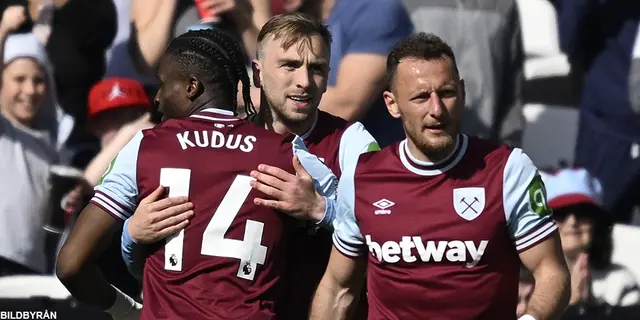I sin krönika i The Times i dag är Chelseas tränare frikostig i sina omdömen om Uniteds utveckling. Nedan följer delar av krönikan oöversatt.
Claudio Ranieris match mot Manchester United i morgon får honom att minnas sin första match i England med Chelsea. Den slutade 3-3 borta mot just United hösten 2000. Sedan dess har mycket hänt.
"I look back and I see how much we've changed, certainly much more than United. There aren't many players left from that Chelsea team: Marcel Desailly, of course, Mario Melchiot, Celestine Babayaro . . . plus Jimmy Floyd Hasselbaink, who had just arrived, John Terry and Carlo Cudicini, who were not yet regulars and maybe one or two others. I suppose I have changed as well. Back then I had the enthusiasm and the curiosity of the newcomer. I wanted to experience England, the cradle of football. I wanted to live the game the way it is lived here, with fans who love clubs the way we Italians love our families."
Ranieri är sin vana trogen filosofisk om tillvaron och utmaningarna som väntar.
"Those feelings have evolved. I still have the enthusiasm, but it's different. The Premiership is no longer a voyage of discovery, it is my home. I have developed a genuine affection for Chelsea and the English game as a result of my seasons of hard work, joy and, yes, at times, suffering. And the challenges, both the ones I've overcome and the ones I am still facing, keep everything fresh. After the events of the summer, we have the opportunity to provide a genuine challenge to Manchester United and Arsenal. Today we do so as neophytes, tomorrow we will do it as equals."
I morgon väntar United på Stamford Bridge.
"Manchester United have changed as well since that September day in 2000, but in important ways, they have remained the same. They are still the benchmark against which we measure ourselves and they have managed to evolve while maintaining their identity and, most importantly, their success on the pitch.
Sättet som United lyckats bevara kontinuitet trots förändringar imponerar på Ranieri.
"Just look at what happened over the summer. They sold two of their most important players, Juan Sebastian Veron and David Beckham, brought in five youngsters and still they have nine points more this season than at the same stage last year. What this shows is foresight, planning and, above all, an ability to choose the right players and an understanding of how to integrate them into a successful structure. Making changes to a winning side without paying the price in terms of results is one of the most difficult things a manager can do. When you're successful over time, it's easy for inertia to set in, you don't want to break up a winning formula. And yet United have been able to do so effectively."
Ranieri har fått beröm för sättet han lyckats integrera spelare i truppen och ilaget. Men han berömmer United enligt samma skala.
"Their secret is that they do a lot of research ahead of time to ensure they have the right players and then they bring them in slowly. By the time they become regulars they are United players in every sense, schooled in the ways of the club and fully integrated. Credit for this must go to Sir Alex, of course, as well as the older players who I believe play a crucial role in helping the newcomers settle."
Vid gårdagens presskonferens växlade Ferguson och Ranieri komplimanger för varandras centralfigurer, Claude Makelele och Roy Keane. Ranieri frortsätter på inslagen väg.
"When it comes to the veterans, I have to tip my hat to Roy Keane. He's the soul of the club, the expression of the manager on the pitch. It's hard to overstate his contribution. As a manager, such players are very important. Beyond the contribution in playing terms, they bring intangible qualities because they fully reflect the coach and his philosophy."
Förmågan att välja rätt spelare och få dem att fungera är något Ranieri gärna återvänder till.
"Finding such players and using them correctly is vital. I believe that a big part of a manager's job, beyond the obvious aspects of coaching, is to identify the innate qualities of a player and helping them rise to the surface. There are important qualities that can't be taught and can't be learnt. They can only be coaxed out of a player.
One example of this is Ruud van Nistelrooy, a player who I think is unique. His mental quickness, his ability to read the game and his opportunism in front of goal are what make him so dangerous, but those characteristics are not things he learnt. They are instincts he was born with. He may have refined them over time, he may have had coaches who have encouraged their development, but none of this would have been possible if he had not been blessed with an extraordinary football mind.
Players like him often get tap-ins and the ball seems always to fall for them. Those who say it's a question of luck are dead wrong. Van Nistelrooy doesn't wear a rabbit's foot around his neck. He gets those types of goals because he was born with a tremendous gift of nature. It says a lot about Sir Alex that he believed in him and bought him even when he was injured and others were scared off. Yes, it was a gamble, but one that paid off handsomely. It 's the ability to make decisions like that which have made United one of the sides we aim to emulate."
Ranieri avslutar med att tala om matchen mot Sparta Prag i veckan.
"A final word on the Champions League. We earned qualification to the knockout stage against Sparta Prague on Wednesday and I am happy with our performance. Sparta are the kind of side who, in Europe, put nine men behind the ball and are happy with a point. It's never easy in those circumstances and I'm proud of the fact that we still created a good number of chances and, in my opinion, scored a perfectly good goal that was disallowed. Results are important, of course, but in certain situations you have to judge yourself based on performance, rather than just the scoreline."
Krönikan är publicerad i The Times 2003-11-29.
Chelsea
2003-11-29 12:48
Ranieri hyllar United
Komplimangerna fortsätter att växlas mellan Manchester United och Chelsea inför söndagens match. Nu är det Claudio Ranieris tur att dela ut beröm.

Socrates



